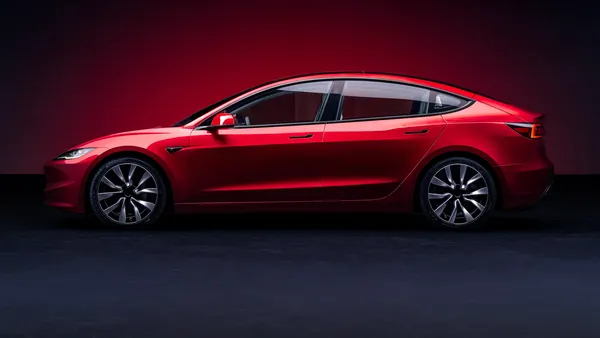Editor's note: This story is part of the WardsAuto digital archive, which may include content that was first published in print, or in different web layouts.
Renault is responding to consumer demands for cars built with eco-credentials by creating a cabin material that is 100% recycled.
In cooperation with fabric specialist Les Filatures du Parc and seat supplier Adient Fabrics, Renault will use the new material – made from safety belts, textile scraps and plastic bottle recycling – in its new Renault Zoe electric car.
The fabric from this recycled carded yarn covers an area of 86 sq.-ft. (8 sq.-m) in the car and is used for the manufacture of seat covers, dashboard coverings, gear lever brackets and door fittings. Renault says it meets its requirements for comfort, cleaning, UV resistance and durability.
Renault claims the supply and short-loop manufacturing of this material, without chemical or thermal transformation, cuts carbon-dioxide emissions more than 60% compared to existing fabrics used in the current vehicle made from a standard manufacturing process.
In addition to recycled fiber, Renault says it is rolling out many material loops, particularly for copper, plastic, platinoids and ferrous and non-ferrous metals. The New Zoe also uses 38.5 lbs. (17.5 kg) of recycled plastic, some of which is used for the first time in the automaker’s range in visible areas in the passenger compartment, such as low-polypropylene interior cabinets.
Jean-Philippe Hermine, director of environmental strategy and planning for Renault, says: “Faced with the challenge of the energy transition, industries have an essential role to play in changing their production methods and reducing their environmental impact.
“This approach contributes to the (Renault) Group’s commitment to reduce the environmental impacts of each vehicle throughout its life cycle and to reduce its global carbon footprint by 25% in 2022 compared to 2010.”











